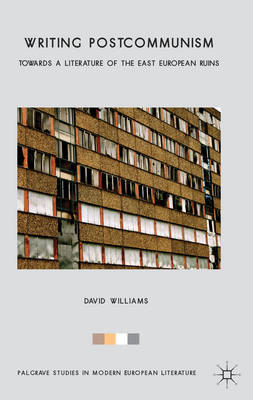Palgrave Studies in Modern European Literature
1 total work
Moving through the elegiac ruins of the Berlin Wall and the Yugoslav disintegration, Writing Postcommunism explores literary evocations of the pervasive disappointment and mourning that have marked the postcommunist twilight. With particular reference to the writings of Croatian emigre Dubravka Ugresic, and those of Milan Kundera, Clemens Meyer, Ingo Schulze, Jachym Topol, Christa Wolf, and others, it is argued that a significant body of postcommunist literature is underpinned and scarred by the semantic field of ruins: melancholia and nostalgia, presence and absence, pride and shame, and not least, remembering and forgetting. Taken together, the writings considered suggest a post-1989 'literature of the ruins', an amorphous, anti-formative framework that also dramatically illuminates the post-1989 ruins of east European literature itself - what remains when, as Gyorgy Konrad put it, 'something is over'.
